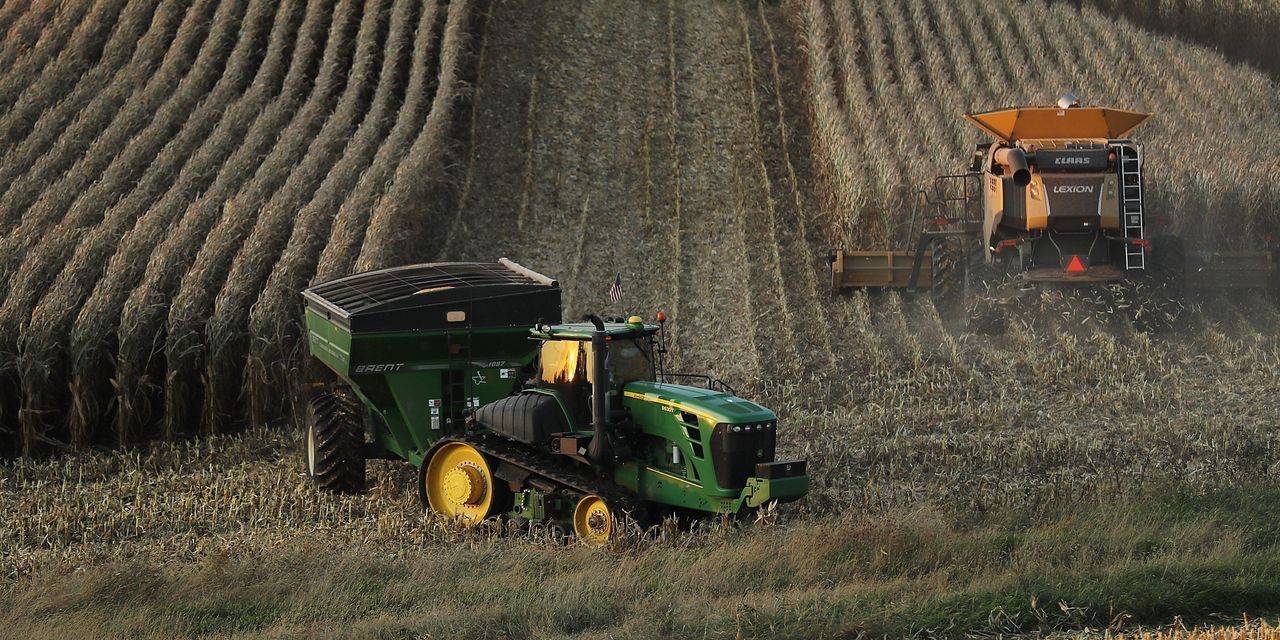Big agricultural groups say a proposal from the U.S. Securities and Exchange Commission requiring companies to report their carbon footprint could drive small farmers out of business. Skeptics say it is more likely to be a boon for consulting businesses.
The proposal, unveiled by the SEC in March and not yet finalized, would require publicly traded companies to disclose their greenhouse-gas emissions, as well as the risks their business faces from climate change. Most controversially, some large companies would also have to provide an estimate of the emissions from their suppliers and consumers.
Agriculture companies and farm groups have said the burden of generating those estimates would get passed on to small private farmers and drive up food costs. Supporters say those claims are misleading, and that large public companies will likely rely on consultants to crunch the numbers.
The SEC proposal is backed by environmentalists and some fund managers who hope more transparency about climate data will help people make more informed investment decisions.
The agriculture industry’s pushback aligns it with some other sectors opposed to the SEC proposal, including auto manufacturers and oil producers. Other industries with a smaller carbon footprint and more liberal-leaning workforce, including the technology and financial industries, have been broadly supportive of the proposal.
Meat processor Tyson Foods Inc
TSN,
said the proposal could have a chilling effect on innovation, and wants any rule to include stronger legal protections for larger companies with sprawling supply chains where calculating emission estimates is difficult. Seed and pesticide maker Corteva Inc.
CTVA,
said the requirement would ultimately result in higher prices at the grocery store.
David Haase, a fourth-generation corn and soybean farmer 90 miles south of Chicago, said he isn’t sure how companies will broadly track carbon-emissions data at the farm level. Haase said he expected that companies would either have to pay farmers for the management tools to record the necessary information or it would be an extra expense to the farmer.
Supporters of the proposed rule said that big food and agricultural companies are hiding behind politically sympathetic small farmers. They note that only publicly held companies would be responsible for the new requirements and that many already collect similar data voluntarily.
Regulators say they intend to require an estimate of emissions from suppliers and customers only if they are considered “material,” or significant to investors, or if the company has outlined specific targets for them. The SEC proposes some legal protection for companies around the estimates, but some businesses are pushing to beef them up. The SEC is considering narrowing the proposal in the face of anticipated legal challenges from business groups and isn’t expected to vote on it until next year, according to an SEC official.
Meanwhile, trade groups including American Farm Bureau Federation and the National Corn Growers Association are rallying their members against the rule. They say requiring companies to calculate such emissions is a daunting task given the nature of farming.
The debate over disclosing broad emissions data arises as agriculture comes under increased environmental scrutiny. A study published in Nature Food in March 2021 estimated that emissions tied to the food system make up about one-third of total global greenhouse-gas emissions.
Minnesota farmer co-op CHS Inc. , a farm cooperative and major grain shipper and retailer of seeds and chemicals, said it has begun committing resources and formulating how it will partner with its customers and suppliers to meet the SEC’s rules when they are completed.
Ethanol producer Green Plains Inc.
GPRE,
has started planning for how it would work with the corn growers who supply it by giving them the measurement tools needed to assess what their emissions might be, said Chief Executive Todd Becker.
